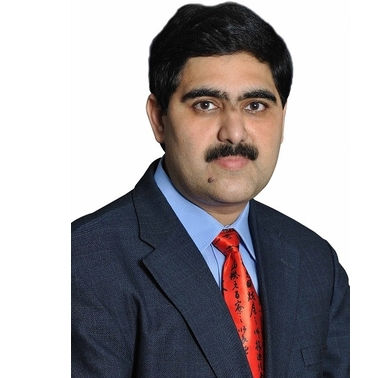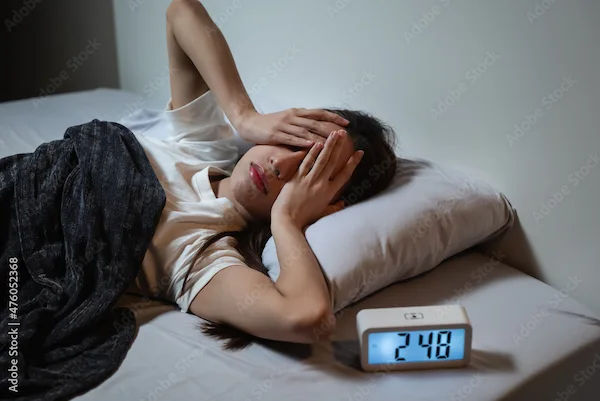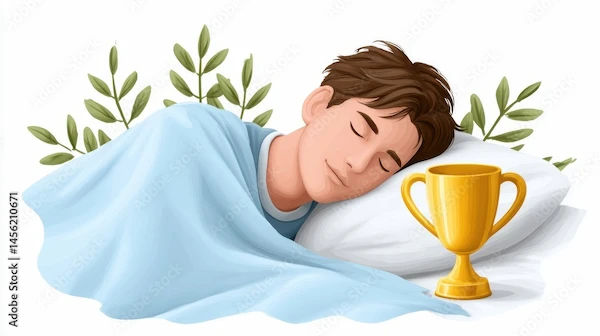Insomnia: What You Need to Know
Struggling with insomnia? Learn about its causes, effects on health, common myths, and expert-backed tips to improve sleep quality. Discover effective treatments and when to seek professional help.

Written by Dr.Sonia Bhatt
Last updated on 3rd Jul, 2025

Introduction
Sleep is an essential part of our overall health and well-being. However, for millions of people, achieving a good night’s rest can be a struggle. One of the most common sleep disturbances is insomnia, a condition that makes it difficult to fall asleep, stay asleep, or wake up too early and not be able to return to sleep. Whether it’s occasional or chronic, insomnia can have a significant impact on both mental and physical health. If you're struggling with sleep, you're not alone—and there are effective ways to manage and treat insomnia. In this article, we’ll explore what insomnia is, its causes, how it affects overall health, common misconceptions, and practical tips for improving sleep quality.
What Is Insomnia?
Insomnia is characterised by difficulty falling asleep, staying asleep, or waking up too early and being unable to fall back asleep. These sleep disruptions can occur even though a person has the opportunity to sleep. It’s important to note that insomnia isn’t just about the number of hours spent asleep, but also the quality of that sleep.
Insomnia can be classified into two main types:
Acute insomnia: This is short-term insomnia that typically lasts a few days or weeks. It is often triggered by stress, anxiety, or a temporary life event like a job change or family issues.
Chronic insomnia: When insomnia occurs at least three times a week for three months or more, it is considered chronic. This type of insomnia often requires more intensive treatment and may be linked to underlying health conditions or persistent life stressors.
Common Causes of Insomnia
Insomnia can be caused by a variety of factors, including:
Stress and Anxiety: Worries about work, relationships, health, or finances can keep the mind active at night, preventing relaxation.
Poor Sleep Hygiene: Habits such as inconsistent sleep schedules, excessive screen time before bed, or consuming caffeine late in the day can interfere with the body’s natural sleep cycle.
Medical Conditions: Chronic pain, asthma, acid reflux, depression, or anxiety disorders can all contribute to insomnia. Conditions such as sleep apnea or restless leg syndrome can also disrupt sleep.
Medications: Certain prescription or over-the-counter medications, including those for high blood pressure, allergies, and depression, can interfere with sleep.
Hormonal Changes: Hormonal fluctuations due to menopause, pregnancy, or other factors can affect sleep.
Lifestyle Factors: Irregular work schedules, travel across time zones, or excessive alcohol use can also lead to sleep difficulties.
The Impact of Insomnia on Health
While occasional sleeplessness is a normal part of life, chronic insomnia can have far-reaching consequences. Lack of sleep affects both the body and the mind in the following ways:
Cognitive Impairment: Insomnia can impair memory, concentration, and decision-making abilities. Chronic sleep deprivation has been linked to increased risks of cognitive decline and even dementia in the long term.
Mental Health Issues: Insomnia and mood disorders such as anxiety and depression often go hand-in-hand. Sleep deprivation can exacerbate feelings of irritability, stress, and anxiety, creating a vicious cycle.
Weakened Immune System: When you don’t get enough sleep, your body’s immune system is less efficient at defending against infections. Chronic insomnia increases the risk of illness.
Increased Risk of Chronic Conditions: Long-term sleep disturbances have been associated with an increased risk of developing chronic conditions such as heart disease, high blood pressure, diabetes, and obesity.
Decreased Quality of Life: Insomnia can affect your overall well-being, leading to fatigue, decreased productivity, and a reduced ability to enjoy daily activities. This can strain relationships and lower your quality of life.
Common Misconceptions About Insomnia
There are several misconceptions about insomnia that may hinder people from seeking the help they need. Let’s address a few:
“Insomnia is just a normal part of ageing.” While older adults may experience changes in sleep patterns, insomnia is not a normal or inevitable consequence of ageing. It’s important to address insomnia at any age to improve quality of life.
“Drinking alcohol helps with sleep.” While alcohol may help you relax initially, it actually disrupts the sleep cycle, causing fragmented sleep and leaving you feeling more tired the next day.
“I can catch up on sleep on the weekends.” Although sleeping in on weekends can help alleviate sleep debt temporarily, it doesn’t make up for the cumulative effects of chronic sleep deprivation. Maintaining a consistent sleep schedule is key.
Tips for Managing Insomnia
If you're dealing with insomnia, there are several lifestyle adjustments and practices that can help improve your sleep quality. These strategies are part of what’s known as sleep hygiene, which refers to healthy habits that promote consistent, uninterrupted sleep.
Establish a Regular Sleep Schedule: Go to bed and wake up at the same time every day, even on weekends. A consistent sleep schedule helps regulate your body’s internal clock, making it easier to fall asleep and wake up naturally.
Create a Relaxing Bedtime Routine: Engage in calming activities before bed, such as reading, taking a warm bath, or practising deep breathing exercises. Avoid stimulating activities, such as watching TV or using electronic devices, as the blue light emitted can interfere with melatonin production, a hormone that regulates sleep.
Optimise Your Sleep Environment: Ensure your bedroom is conducive to sleep by making it cool, quiet, and dark. You may want to invest in blackout curtains, earplugs, or a white noise machine. Also, choose a comfortable mattress and pillows that support restful sleep.
Limit Stimulants and Alcohol: Avoid consuming caffeine, nicotine, and alcohol several hours before bedtime. These substances can interfere with your ability to fall asleep and stay asleep.
Be Mindful of Your Diet: Try not to eat large meals close to bedtime, as this can lead to discomfort or indigestion. If you're hungry before bed, a light snack, such as a banana or a small handful of nuts, can help.
Exercise Regularly: Physical activity can promote better sleep, but be mindful of the timing. Exercise too close to bedtime can increase alertness and make it harder to fall asleep. Aim to finish exercising at least a few hours before bed.
Manage Stress and Anxiety: Chronic stress is a major contributor to insomnia. Incorporate relaxation techniques into your daily routine, such as mindfulness meditation, yoga, or journaling. Managing your stress levels during the day can help prevent sleep issues at night.
Treatment Options for Insomnia
If lifestyle changes and improving sleep hygiene don’t help alleviate insomnia, it may be time to consider other treatment options. There are various approaches, depending on the severity of the insomnia and its underlying causes.
Cognitive Behavioral Therapy for Insomnia (CBT-I): CBT-I is a highly effective, evidence-based therapy that helps you identify and change negative thoughts and behaviours that contribute to insomnia. It focuses on improving sleep habits, addressing unhelpful thought patterns, and learning relaxation techniques.
Prescription Medications: Doctors may prescribe medications such as benzodiazepines, non-benzodiazepine hypnotics, or melatonin receptor agonists for short-term use. These medications should be used under the guidance of a healthcare provider.
Relaxation Therapies: Techniques like progressive muscle relaxation (PMR), guided imagery, and biofeedback can help reduce tension and promote sleep.
Alternative and Complementary Therapies
In addition to conventional treatments, some individuals find relief from insomnia through alternative and complementary therapies, such as:
Herbal Supplements: Valerian root, chamomile, and lavender are commonly used to promote relaxation and improve sleep quality. Consult a healthcare provider before using any supplements.
Acupuncture: This traditional Chinese medicine technique involves inserting thin needles into specific points on the body to promote relaxation and improve sleep.
Aromatherapy: Essential oils such as lavender, chamomile, and sandalwood can be used in diffusers or applied topically to promote relaxation and improve sleep.
When to Seek Professional Help
If insomnia persists despite making lifestyle changes or if it’s significantly affecting your daily life, it’s important to consult a healthcare provider. A doctor or sleep specialist can help identify the underlying causes of insomnia and recommend appropriate treatment options. Conditions such as sleep apnea, restless leg syndrome, or depression may require specialised care.
Conclusion
Insomnia is a common and often debilitating condition, but it is treatable. By understanding the causes and effects of insomnia and adopting healthy sleep habits, you can improve the quality of your sleep and overall well-being. Whether you’re dealing with acute or chronic insomnia, there are effective strategies available to help you achieve restful, restorative sleep. If lifestyle adjustments aren’t enough, seeking professional help can provide additional support and lead to long-term improvements in your sleep. Remember, you deserve a good night’s rest, and with the right approach, you can get there.
Consult Top Neurologists
Consult Top Neurologists

Dr. Shiba Kalyan Biswal
Pulmonology Respiratory Medicine Specialist
18 Years • MBBS,MD,DM(AIIMS Delhi)
Gurugram
APOLLO SUGAR CLINICS GURUGRAM, Gurugram

Dr. Suresh G
General Physician/ Internal Medicine Specialist
25 Years • MBBS, MD
Bangalore
Apollo Clinic Bellandur, Bangalore
(225+ Patients)
Dr Srinivas Rajagopala
Pulmonology Respiratory Medicine Specialist
20 Years • MBBS, MD (Int Med), DM (Pul & Crit Care), Fellowship in Lung Transplantation (Toronto)
Chennai
Apollo Cancer Speciality Hospital, Teynampet, Chennai

Dr. Arjun Ramaswamy
Pulmonology Respiratory Medicine Specialist
9 Years • MD (RESPIRATORY MEDICINE), DM (PULMONARY MEDICINE, CRITICAL CARE AND SLEEP MEDICINE)
Mumbai
Apollo Hospitals CBD Belapur, Mumbai
(25+ Patients)

Dr. Nagarajan Ramakrishnan
Sleep Medicine Specialist
25 Years • MD, MMM, FACP, FCCP, FCCM
Chennai
Apollo Hospitals Greams Road, Chennai
(25+ Patients)




